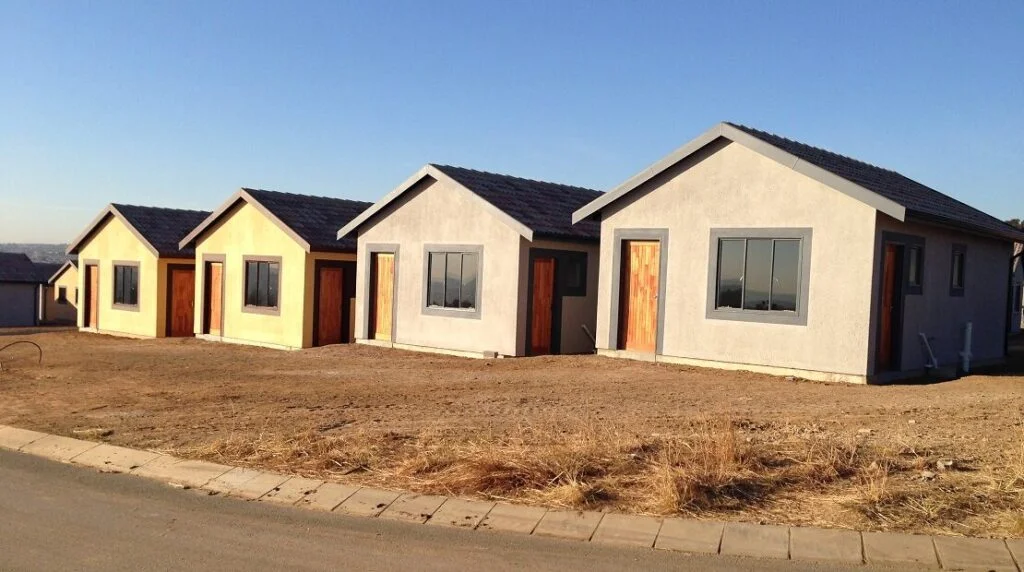RDP (Reconstruction and Development Programme) housing is a South African government initiative aimed at providing low-cost housing to the country’s poorest citizens. While the program has helped many families access decent shelter, it has also become a target for scams. Fraudsters exploit people’s desperation and lack of knowledge, leading to significant financial losses and emotional distress.
To protect yourself and your loved ones, it’s crucial to understand how these scams work and what steps you can take to avoid becoming a victim.
Understanding RDP Housing Scams
RDP housing scams come in many forms, but they all aim to trick you into parting with your money or personal information. Some common types of scams include:
1. Fake RDP House Sales
Scammers pose as government officials or homeowners and claim to sell RDP houses. These fraudsters often provide fake documentation and demand upfront payments. Once the victim pays, the scammer disappears.
2. Application Fee Scams
Fraudsters pretend to assist with RDP housing applications and charge a “processing fee.” In reality, RDP housing applications are free, and this fee is just a way to steal your money.
3. Rental Scams
In some cases, scammers advertise RDP houses for rent, collect deposits and rental fees, and vanish before handing over the keys.
4. Identity Theft
Scammers may collect your personal information, such as your ID number, under the guise of helping you with an RDP application. They then use this information to commit fraud in your name.
How to Identify RDP Housing Scams
It’s important to recognize the warning signs of an RDP housing scam. Here’s what to watch out for:
1. Unofficial Communication
Scammers often communicate via WhatsApp, SMS, or unverified social media accounts. Official RDP housing processes are handled through government offices or legitimate channels.
2. Requests for Upfront Payments
Be cautious if someone asks for a deposit, registration fee, or any other upfront payment. The government does not charge for RDP housing.
3. Lack of Proper Documentation
If the seller or agent cannot provide legitimate documents proving their authority to sell or rent the property, it’s a red flag.
4. Deals That Are Too Good to Be True
If someone offers you an RDP house for an unrealistically low price or promises quick access to housing, they might be scamming you.
Steps to Protect Yourself
Now that you know how RDP housing scams operate, here are some essential tips to safeguard yourself and your family:
1. Verify All Information
Always double-check the information you receive about RDP housing. Contact your local municipal offices or the Department of Human Settlements directly to confirm the details.
2. Avoid Payments Without Verification
Never pay any money without verifying the legitimacy of the transaction. Government services related to RDP housing are free of charge.
3. Protect Your Personal Information
Be careful when sharing your personal details. Provide your ID number and other sensitive information only to authorized government officials.
4. Use Official Channels
Always apply for RDP housing through official channels, such as municipal offices or the Department of Human Settlements’ website. Avoid private individuals offering to “fast-track” your application.
5. Educate Yourself
Stay informed about the RDP housing process and requirements. The more you know, the less likely you are to fall for a scam.
What to Do If You’re a Victim
If you suspect that you’ve fallen victim to an RDP housing scam, take immediate action:
1. Report the Scam
Contact your local police station to report the fraud. Provide as much information as possible, including the scammer’s contact details, payment receipts, and any other evidence.
2. Inform the Department of Human Settlements
Notify the Department of Human Settlements about the scam. They may be able to assist or issue warnings to others.
3. Protect Your Identity
If your personal information has been stolen, contact your bank and the South African Fraud Prevention Service (SAFPS) to prevent identity theft.
4. Spread Awareness
Warn your friends, family, and community about the scam to prevent others from falling victim.
Common Misconceptions About RDP Housing
1. You Can Buy RDP Houses from Anyone
Only the government or an authorized seller can facilitate the sale of RDP houses. If someone claims to own an RDP house and offers to sell it to you, proceed with caution.
2. Paying Extra Guarantees Approval
No one can guarantee RDP housing approval in exchange for money. Housing allocations are based on strict eligibility criteria and waiting lists.
3. Social Media Listings Are Always Genuine
While social media can be a useful tool for finding housing opportunities, many listings are scams. Verify every claim before making any commitments.
Tip: 7 Steps to Take If Your RDP Application Is Declined: A Guide for Affordable Housing Applicants
Government Resources for RDP Housing
To avoid scams, it’s essential to use official resources when dealing with RDP housing matters:
- Department of Human Settlements: Visit their official website or contact their offices for accurate information about RDP housing.
- Municipal Offices: Local government offices can provide guidance on the application process and address any concerns.
- Fraud Prevention Services: Organizations like the SAFPS can help if you suspect identity theft or fraud.
Also read: Are You Allowed to Rent Out Your RDP House in 2025? Here’s What the Law Says
RDP housing scams prey on vulnerable individuals, but with the right knowledge and precautions, you can protect yourself. Always verify information, avoid unofficial payments, and use trusted channels when dealing with RDP housing matters. If you suspect fraud, report it immediately and share your experience to help others stay safe.
By staying vigilant and informed, we can work together to reduce the impact of these scams and ensure that the RDP housing program continues to benefit those who need it most.










